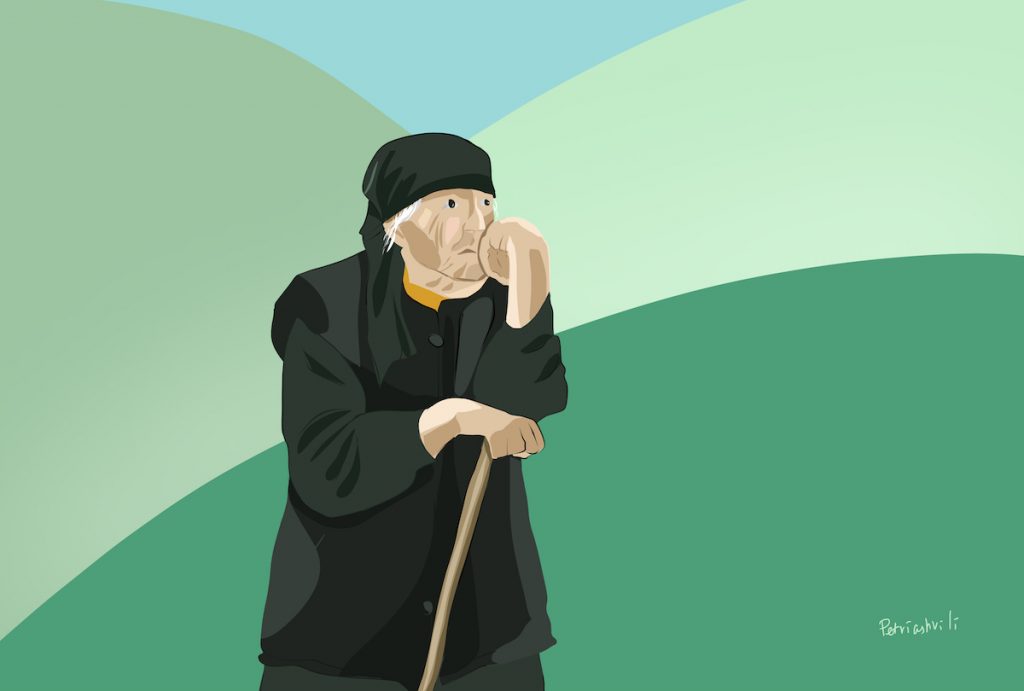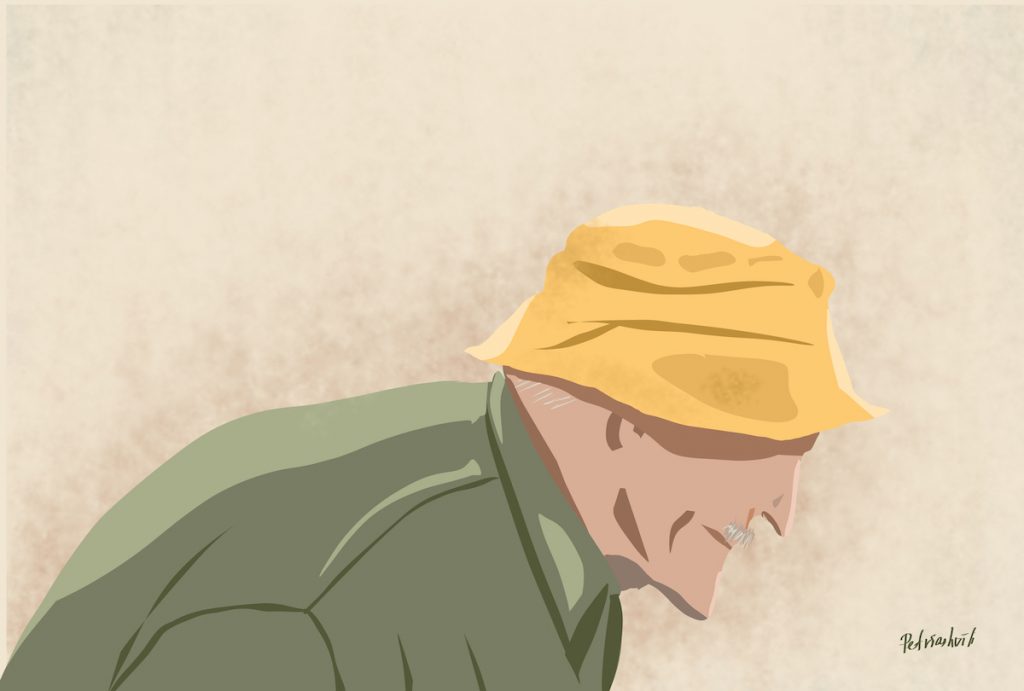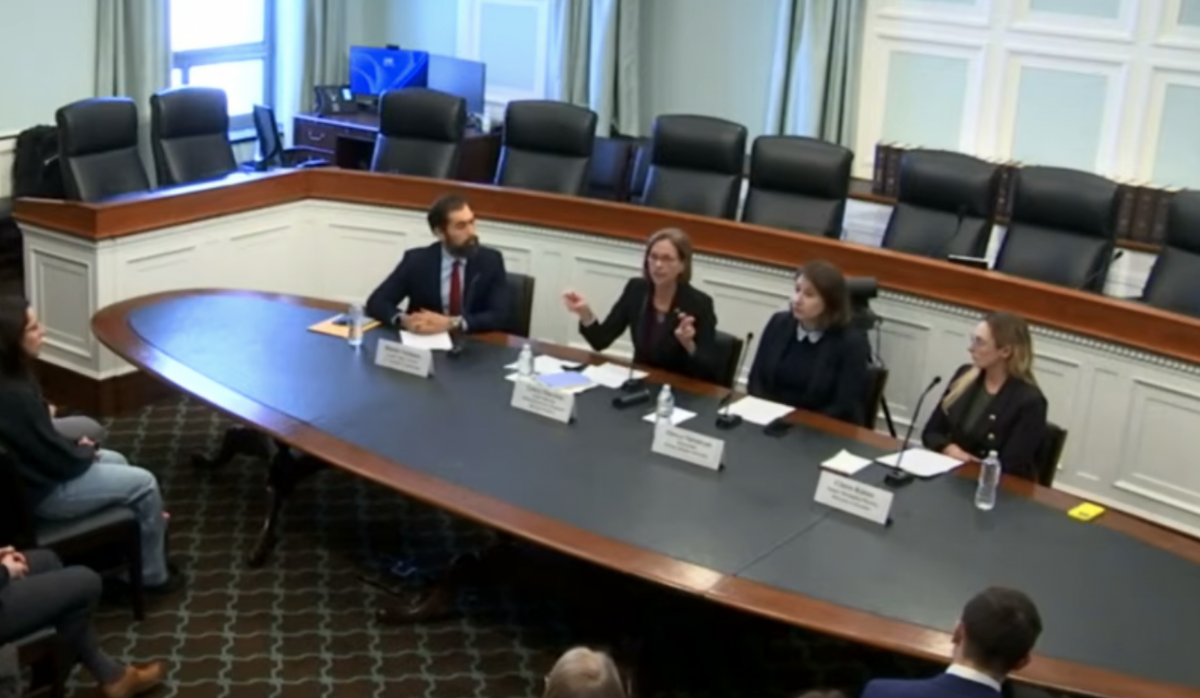Nursing homes in Georgia – both shunned and in critical demand
Nursing homes and old age in Georgia
More than a hundred elderly people in Georgia are waiting for the opportunity to get into a nursing home. But state homes have such a meager budget that they can accept only a small part of all who apply.
Private boarding houses are not available for most pensioners and their families.
Another problem that prevents many from going to live in a nursing home is the local taboo, which considers it a shame if a family sends an elderly person to live in a nursing home.

Ketevan Tushuri has lived all her life in the village of Tianeti, 80 kilometers from Tbilisi. She had no children, her husband and only brother died many years ago. And at the age of 83, she was left completely alone in her home.
“I was born in 1938, at the age of five I was left without a father. After school, I helped out the neighbors, they fed me. I ate just a little, I was shy. Then I got married, but did not give birth to a child. When the doctor saw me, he said that my body was underdeveloped due to malnutrition, and I would not be able to get pregnant and give birth. So I was left alone, there was no one to take care of me”.
Years passed, she grew old and could no longer take care of her garden. Sometimes the neighbors took pity on her and watered it for her. Gradually, she developed a strong fear of loneliness, and she turned to the local municipality with a request to help her go to live in a boarding house.
They managed to help her. For two months now, Ketevan has been living in a small boarding house for the elderly called My Family in Tbilisi.
“Maya [the director of the boarding home] takes care of me, as my own daughter probably would not have done if I had one. Now there is this coronavirus, and she will not let us go anywhere. She comes herself, opens the windows so that we have fresh air in our rooms. We are tested once a month. Nobody has gotten sick yet, we didn’t even have the usual flu. I am very lucky that I got here.”
87-year-old Tsiala Tavartkiladze has been living in the Basiliada boarding house in Tbilisi for eight years. Like the boarding house My Family, it is a public organization. It operates as a private nursing home and also accepts socially disadvantaged elderly people for whom the state pays.
Tsiala has a Ph.D. in Agricultural Sciences and has worked for 62 years at a research institute. “Mom told me: why did you get these books? Get married!” But I never got married. Then I somehow met a driver, but he turned out to be married. Well, you never know, maybe I’ll find someone in my right mind here and get married,” Tsiala jokes.
How the nursing home system works in Georgia
Ketevan and Tsiala were lucky. But more than a hundred other elderly people in Georgia are waiting in line for such luck.
In the country, 14.8 percent of the population is over 65 years old. But there are only 15 state boarding houses.
Two of them are large – in Tbilisi and in Kutaisi. The other 13 are small boarding houses located in private houses. On average, each can accommodate up to 30 people.
In total, a total of 400 elderly people live in nursing homes throughout the country, for whom the state pays. But there are never empty rooms.
Elderly people who find themselves in state boarding houses mainly belong to socially vulnerable groups of the population. According to the law, citizens of retirement age can count on a place in a nursing home – women over 60 and men over 65.
To get there, an elderly person must contact social services, who sends an employee to visit the candidate and assess their needs. And on the basis of this, a decision will be made – whether an elderly person can go to a nursing home, and how much they will receive in state funding.
My Family, where Ketevan Tushuri lives, is a state home, which is located in Gldani, a residential area of Tbilisi. Including Ketevan, 12 people now live here – ten women and two men. The oldest is 94 years old, the youngest is 75 years old. Of these twelve, five are paid for by their families, and the rest by the state.
The state allocates 22 lari per day for expenses [about $6.5]. This amount includes round-the-clock care for the elderly, their hygiene, first aid and three meals a day.
But for 22 lari it is impossible to provide for an elderly person normally, says Maya Akhaladze, director of the nursing home. All other expenses are covered by public organizations, various foundations and individuals.
“Therefore, I can only accept seven elderly people for whom there is no one to pay. But the waiting list is large, and we need to somehow increase this limit,” Akhaladze says.
In addition to state boarding houses, there are small private boarding houses in Georgia, where one guest costs a more significant amount. For example, in the Taoba boarding house there are 14 elderly people, each of whom pay 60 lari per day [about $17.5]. Most of them are elderly people who need special and constant care and supervision.
“We have high standards and quality. After all, caring for a sick elderly person at home is much more expensive than ours. You need to hire a nurse, buy hygiene items, etc. It costs a family about GEL 4,000 a month [about $1,170]. And we do all this for 1,800 lari [about $525],” says Ucha Vakhania, head of the nursing home.
But on average, the life of an elderly person in a boarding house in Georgia costs from 500 to 800 lari per month [about $146-235]. Prices depend on various factors – on the health status of the elderly person, whether he can take care of himself on his own, as well as on other conditions. The monthly fee always includes three meals a day, basic elderly care and primary health care.
Local mentality has it that ending up in a nursing home is a misfortune. But is it?

The owners of private boarding houses say that nursing homes are an unprofitable business in Georgia. There are several reasons for this.
There is still a strong stereotype in Georgia that sending an elderly person to a nursing home is like abandoning them to their fate. Therefore, nursing homes are mainly occupied by those who do not have a guardian, whose family has gone abroad, or who have serious health problems: Alzheimer’s disease, dementia.
Another category is those who have lost their apartment and who no longer have their own home. Or bad relationships with family members. Or the family may not be able to properly care for elderly relatives.
“Many do not understand what it is like to live in old age. When it is not enough that there are children and grandchildren. When a person wants to communicate with peers, to be in the company of friends, and not just family,” says Maya Akhaladze, director of the My Family nursing home.
Tsira Gvasalia, a journalist who made a documentary about nursing homes, also says she was influenced by stereotypes before filming:
“I initially had the opinion that elderly people in boarding houses are abandoned and unhappy. But when I got there, I saw a completely different reality. Their life is full and interesting, they spend time together to the full.”
Ucha Vakhania says that the mentality in the country is slowly but still changing. If there are many good nursing homes, public opinion will change even faster, he said:
“Family members of older people see that we take care of them much better than they do at home. And that many older people are happier when they live here and make friends. Many famous people have spent part of their lives with us.”
Maya Akhaladze says the same:
“The attitude of society is changing. In 2003, when I decided to open a nursing home, I was condemned, they said that in Georgia the elderly should not be sent to a nursing home. But now fewer and fewer people think about what their relatives or neighbors will say. The most important thing is that everything is in order with a loved one.”
Another reason why private boarding houses for the elderly in Georgia have not yet become the norm is poverty. According to a survey by UNPFA and the Red Cross, in August 2020, 189,213 people aged 65 and over were living in poverty in Georgia, which means almost every fourth elderly person.
The main income for 84 percent of older people in Georgia is a pension of 220 lari [about $64].
Even those seniors who have some kind of savings cannot afford to pay for a private nursing home. Sometimes loved ones do it for them. Most often this happens when children have left to live abroad and cannot personally take care of their parents who have remained in Georgia. Then they try to provide them with a quiet, secure old age in a private boarding house.
Poverty isn’t the only problem facing the elderly
Georgia is an aging country.
According to the UN, a nation is considered aging if seven percent of the population is over 65. According to the National Statistical Office, in 2019 the number of people of this age in Georgia is twice as large – 14.8 percent.
Old age problems in Georgia do not end with poverty. Although more than half a million people are elderly, there are no special services for them. In cities, there is no special infrastructure that allows older people to more fully integrate into society and live a full life.
According to Ucha Vakhania, the fact that an elderly person in Georgia is considered “written off” is primarily to blame for the mentality, society and family members of these elderly people:
“Society is used to the fact that older people literally have no right to a fulfilling life. As if they don’t exist. No one cares what the old man thinks, what his opinions are on various important issues. What benefits he or she would like to bring to society, how would they like to realize themselves. Sit in a locked house and keep calm – this is the fate of the elderly in Georgia.”
Most older people in Georgia feel “a burden” to their families, says Elene Janberidze, project manager for the Department of Gerontology and Palliative Medicine at the Institute of Morphology at Tbilisi State University.
Due to the difficult social situation in the country, people over 65 in Georgia have many health problems. And one of the main directions of social policy should be the creation of an accessible and extensive network of nursing homes ”.
“Aging in Georgia is scary,” says journalist Tsira Gvasalia. – There is no guarantee that the state will help when you get sick or die of hunger. If you do not have a child, there is no one to hope for ”.
What needs to be done
Since 2012, elderly people in Georgia have been using the health care program, they have discounts on medicines and transportation. However, this is not enough. On average, one third of health care costs, and sometimes more, are borne by families.
In 2020, the coronavirus was added to all these problems. And this, according to all estimates and forecasts, will become a long-term problem for humanity.
According to a UNPFA and Red Cross study, the pandemic has caused high mortality among older people in Georgia, as it does around the world. And social distance, isolation and the transition of most relationships with people online have extremely negatively affected both the physical and mental health of older people.
“But after all, very small details can brighten up the life of an elderly person. For example, so that the green light at a pedestrian crossing would not be so short. Or that there would be more toilets on city streets,” says Vakhania.
A poor country like Georgia has two simple and inexpensive solutions that can make life more enjoyable for older people, he says:
“The first is a place for the elderly, where an elderly person can come and spend time with friends.
The second is home care services. In this case, the elderly will be at home, and they will be helped with washing, preparing food and buying medicines.”
Mariam Palavandishvili, General Director of the Transfiguration Hospital, cites as examples other countries where volunteers do a lot for the elderly:
“In England, for example, palliative care volunteers are trained and then go to the elderly, buy their medicine, give them injections – and also interact with them. It is very important to work with our society in this direction ”.
Experts say that in order for the lives of older people to truly change, it is necessary, first of all, to change public consciousness:
“The investments of our society and the state in the elderly are practically zero. But why? Did someone say that after a certain age, a normal life is impossible? Or at 85 you cannot be happy? God and nature did not impose such restrictions. We set such restrictions,” says Mariam Palavandishvili.


















